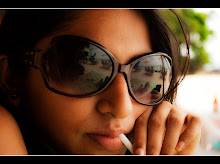Havent been well for the past ten days...a bad cold, sore throat and now cough...so apart from the fact that I havent had icecream in 10 days, I havent done much except sleep and eat. I finished this amazing book I was reading...William Dalrymple's'White Mughals'. A fantastic book- while the crux of the story is how the British Resident in Hyderabad falls in love with the grandaughter of an important Hyderabadi noble and the consequences of his actions-the book deals with the much wider issue of theEnglish coming to India and adapting to the culture of India.
There are some fascinating stories...of an Englishman in Delhi who had 13 wives, another Englishman who hadbecome so Indianised that he was referred to as'Hindoo Stuart', another Englishman who wrote that the sari was the sexiest garb in the world and strongly recommended that women even in the western world wear it if they were to stand the competition given by Indian women...little tidbits about life in India in the 18th century. The amalgamation of Indian and English culture makes for gripping reading.
The book also gives us sudden and small insights into the intrigue surrounding deccani politics of that time...mostly between the Hyderabad of the Nizams, the Maratha Confedaracy centred at Pune and Tipu's Mysore.And the French-British struggle for control over the deccan through these. This is the only book I everread on the period after the Golden Era of the Mughal period (which effectively ended with the death ofAurangzeb) and before the First War of Independence in1857.
And it is interesting to observe life during those times. While the British were certainly working on gaining control over India, they hadnt yet introduced any of the harsher measures either in civillian life or in the military which was later the cause of much antagonism. The denizens of the country hardly seemed to look upon the British as their rulers- in fact, they considered the Indian princes to be their rulers and the British played the part of protector by signing deals with the princes where the British would provide an army to the prince in exchange for part of the revenues etc. By having complete control over the internal and external protection of these Indian states,the British certainly had control over the country itself but this control wasindirect.
A lot of Englishmen madeban effort to learn some Indian language or the other-they studied Indian scholarly texts and were quiteimpressed by them - a good example in case would beWarren Hastings. While the atmosphere was certainly one of suspicion and plotting, at that stage the British was still not considered the common enemy and this allowed a great degree of mingling between the English and the Indians- resulting not only in a whole league ofAnglo-Indians but also a refreshing culture ofadjustments and quaint mixed traditions.
While reading the book, I kept stopping at crucial points to indulge myself in 'what if...' conjectures.Imagine this - Arthur Wellesley would not have become the Duke of Wellington if his older brother had decided to send him into the diplomatic service instead of letting him continue in the military. More interesting - the French and not the British would have ruled India if the Napolean had not been defeated(it is now known that he was in active communication with Tipu about throwing the British out of India).And if that had been the case, how would it have affected our freedom struggle, our date of Independence and how would French rule have changed the face of India as we know it now...
Im now quite determined to read up more on history. I have for quite a while been looking for a book that gives a British perspective of the Indian struggle for independence. Since we studied the Indian struggle for Independence only in the 10th Std. & that too under the relatively less censured ICSE syllabus, our history textbook did not leave us with the impression that all Indians were heroes and all Englishmen were eveil. Sure, it did convey that message but certainly not that everything was black and white - the textbook admitted that there was scope for grey too. So it let me think about the other perspective - in English history textbooks, are Indians depicted as ungrateful wrethches or uncivilised brabarians who were civilised by the British only to against them. It would be interesting to see how the British explain actions which must now seem quite harsh and unjust to them to their future generations
But we see history always plays out this way - when one country takes advantage of another for its ownbenefit, irrespective of whatever harm it might cause to that country, it will always find ways to justify its actions. It happened then with England and India,its happening now with the US and Iraq or the US andAfghanistan. And these are only 3 examples but history is replete with many such incidents. And then when I look back, I dont see India ever doing that. Maybe itis too weak for it. But I think it is actually becauseIndians are generally laidback, easygoing people who are to a large extent content with what they have....or the other perspective, too lazy to want to achieve more.Whatever be the reason, I guess it is still one thing we can be proud of.
Oh well.....I only wanted to say I read a brilliantbook - the author managed to seemingly effortlessly merge history and literature to create a masterpiece.

No comments:
Post a Comment
Go on, make my day!